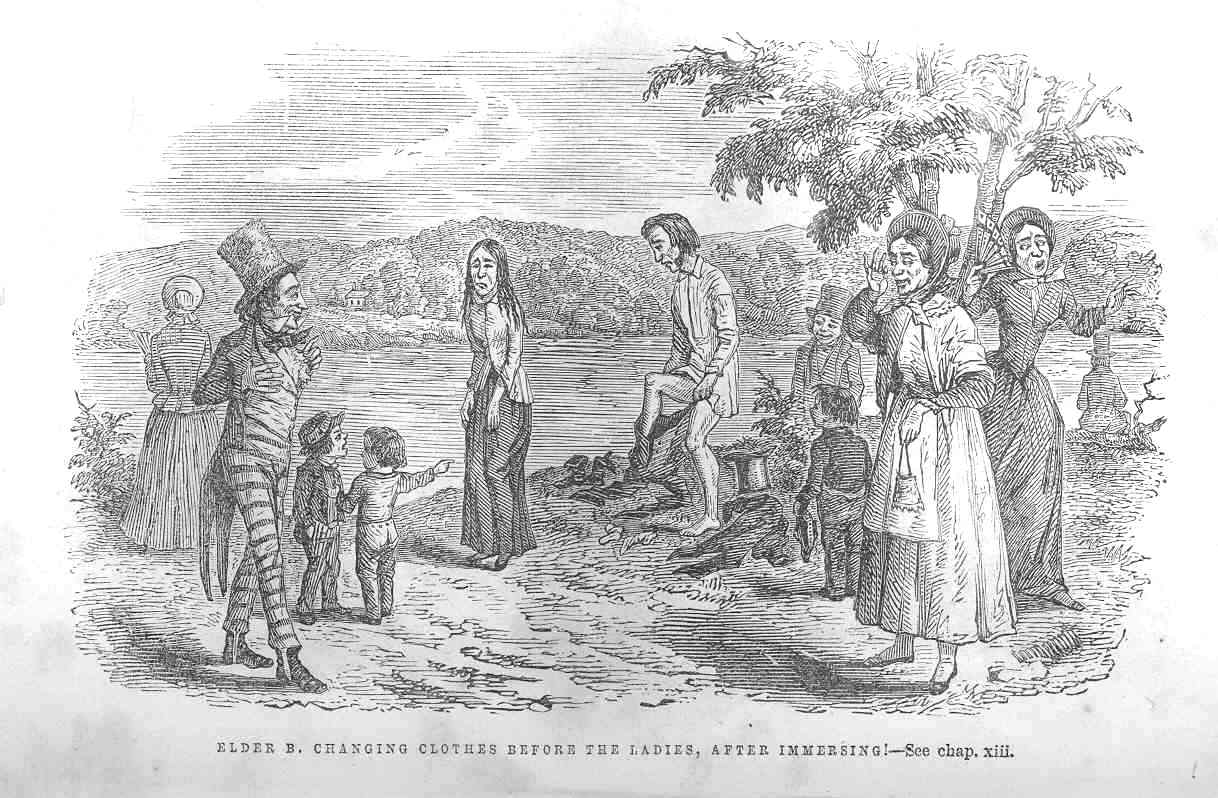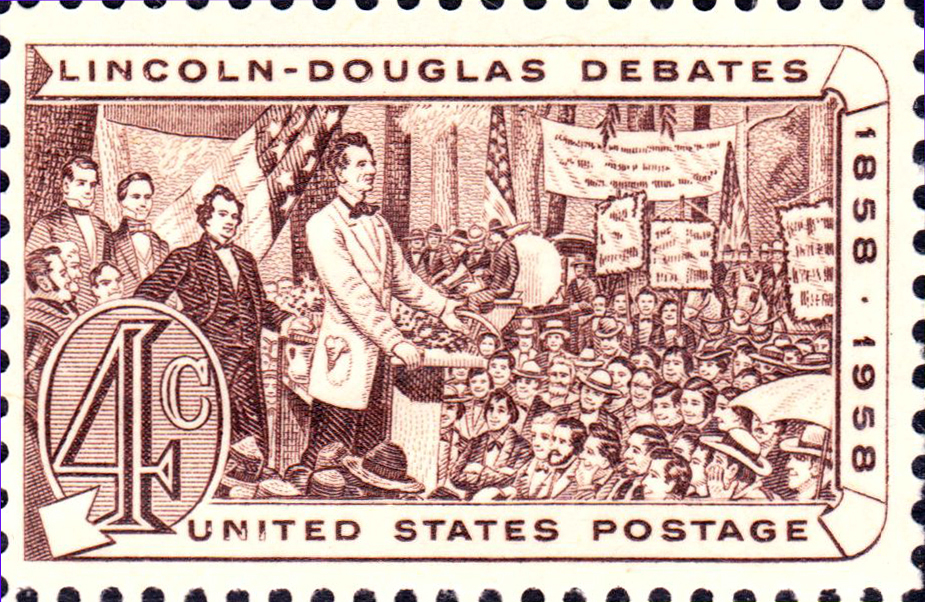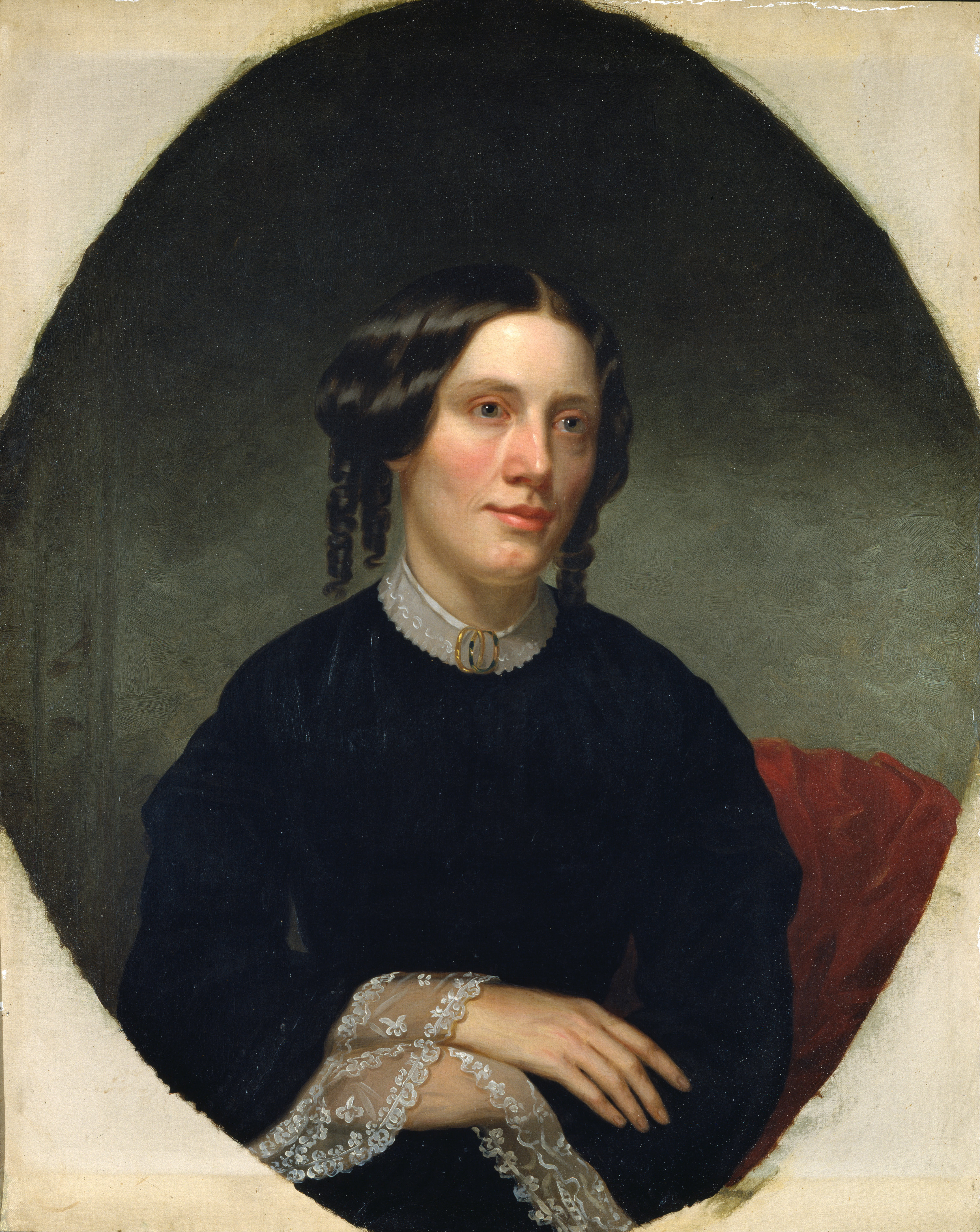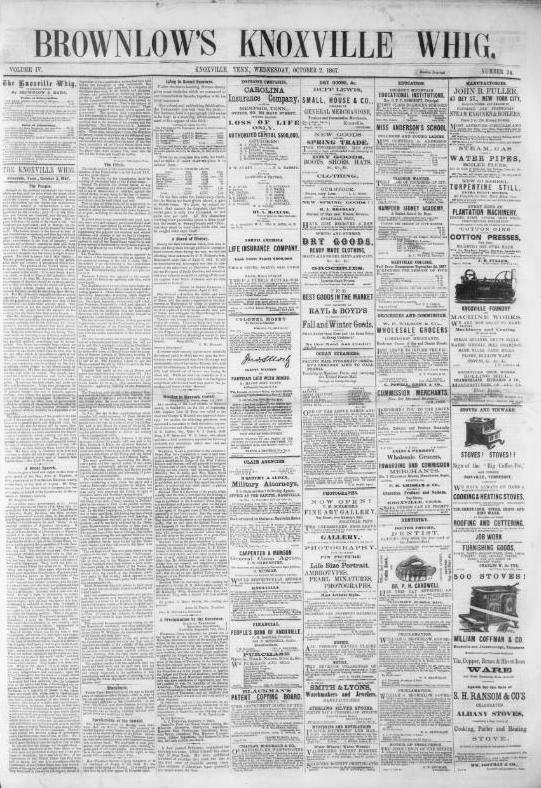|
Frederick Augustus Ross
Frederick Augustus Ross (December 25, 1796 – April 13, 1883) was a Presbyterian New School clergyman in both Kingsport, Tennessee, and Huntsville, Alabama, slave owner, publisher and pro-slavery author of the book ''Slavery As Ordained of God'' (1857). Frederick Augustus Ross was born in Cumberland County, Virginia, as the son of David Ross, a wealthy businessman in Richmond, Virginia, who himself had emigrated from Scotland in the mid-eighteenth century. Ross was educated at Dickinson College located in Carlisle, Pennsylvania, with the class of 1815, although he did not graduate with his class. Enters ministry in Northeast Tennessee During 1818, Ross entered into the Presbyterian ministry, emancipated his slaves, and then he moved to Kingsport, Tennessee, where he had his massive Rotherwood mansion, constructed on the Netherland Inn Road. Ross had his daughter, Rowena, educated at boarding schools located within the northern United States. Ross became pastor of Old Kingspo ... [...More Info...] [...Related Items...] OR: [Wikipedia] [Google] [Baidu] |
William Gannaway Brownlow
William Gannaway "Parson" Brownlow (August 29, 1805April 29, 1877) was an American newspaper publisher, Methodist minister, book author, prisoner of war, lecturer, and politician who served as the 17th Governor of Tennessee from 1865 to 1869 and as a United States Senator from Tennessee from 1869 to 1875. Brownlow rose to prominence in the late 1830s and early 1840s as editor of the '' Whig'', a polemical newspaper in East Tennessee that promoted Whig Party ideals and opposed secession in the years leading up to the American Civil War. Brownlow's uncompromising and radical viewpoints made him one of the most divisive figures in Tennessee political history and one of the most controversial Reconstruction Era politicians of the United States. Beginning his career as a Methodist circuit rider in the 1820s, Brownlow was both censured and praised by his superiors for his vicious verbal debates with rival missionaries of other sectarian Christian beliefs. Later, as a newspaper publi ... [...More Info...] [...Related Items...] OR: [Wikipedia] [Google] [Baidu] |
Dickinson College Alumni
Dickinson may refer to: People * Dickinson (name) Place names United States * Dickinson, Minnesota * Dickinson, Broome County, New York * Dickinson, Franklin County, New York * Dickinson, North Dakota * Dickinson, Texas * Dickinson township, Cumberland County, Pennsylvania * Dickinson County, Iowa * Dickinson County, Kansas * Dickinson County, Michigan * Jonathan Dickinson State Park, southeast Florida * Port Dickinson, New York Canada * Dickinson's Landing, Ontario, ghost town Education United States * Dickinson College, liberal arts college in Carlisle, Pennsylvania * Dickinson High School (Dickinson, North Dakota) * John Dickinson High School, Wilmington, Delaware * Dickinson School of Law, Carlisle, Pennsylvania * Dickinson State University, public university in Dickinson, North Dakota * Fairleigh Dickinson University, university in New Jersey Other uses * Becton Dickinson, American medical equipment manufacturer * ''Dickinson'' (TV series), an American comedy TV s ... [...More Info...] [...Related Items...] OR: [Wikipedia] [Google] [Baidu] |
Presbyterian Church In The United States Of America Ministers
Presbyterianism is a part of the Reformed tradition within Protestantism that broke from the Roman Catholic Church in Scotland by John Knox, who was a priest at St. Giles Cathedral (Church of Scotland). Presbyterian churches derive their name from the presbyterian form of church government by representative assemblies of elders. Many Reformed churches are organised this way, but the word ''Presbyterian'', when capitalized, is often applied to churches that trace their roots to the Church of Scotland or to English Dissenter groups that formed during the English Civil War. Presbyterian theology typically emphasizes the sovereignty of God, the authority of the Scriptures, and the necessity of grace through faith in Christ. Presbyterian church government was ensured in Scotland by the Acts of Union in 1707, which created the Kingdom of Great Britain. In fact, most Presbyterians found in England can trace a Scottish connection, and the Presbyterian denomination was also tak ... [...More Info...] [...Related Items...] OR: [Wikipedia] [Google] [Baidu] |
1883 Deaths
Events January–March * January 4 – ''Life (magazine), Life'' magazine is founded in Los Angeles, California, United States. * January 10 – A Newhall House Hotel Fire, fire at the Newhall Hotel in Milwaukee, Wisconsin, United States, kills 73 people. * January 16 – The Pendleton Civil Service Reform Act, establishing the United States civil service, is passed. * January 19 – The first electric lighting system employing overhead wires begins service in Roselle, New Jersey, United States, installed by Thomas Edison. * February – ''The Adventures of Pinocchio'' by Carlo Collodi is first published complete in book form, in Italy. * February 15 – Tokyo Electrical Lightning Grid, predecessor of Tokyo Electrical Power (TEPCO), one of the largest electrical grids in Asia and the world, is founded in Japan. * February 16 – The ''Ladies' Home Journal'' is published for the first time, in the United States. * February 23 – Al ... [...More Info...] [...Related Items...] OR: [Wikipedia] [Google] [Baidu] |
1796 Births
Events January–March * January 16 – The first Dutch (and general) elections are held for the National Assembly of the Batavian Republic. (The next Dutch general elections are held in 1888.) * February 1 – The capital of Upper Canada is moved from Newark to York. * February 9 – The Qianlong Emperor of China abdicates at age 84 to make way for his son, the Jiaqing Emperor. * February 15 – French Revolutionary Wars: The Invasion of Ceylon (1795) ends when Johan van Angelbeek, the Batavian governor of Ceylon, surrenders Colombo peacefully to British forces. * February 16 – The Kingdom of Great Britain is granted control of Ceylon by the Dutch. * February 29 – Ratifications of the Jay Treaty between Great Britain and the United States are officially exchanged, bringing it into effect.''Harper's Encyclopaedia of United States History from 458 A. D. to 1909'', ed. by Benson John Lossing and, Woodrow Wilson (Harper & Brothers, 191 ... [...More Info...] [...Related Items...] OR: [Wikipedia] [Google] [Baidu] |
Lincoln–Douglas Debates
The Lincoln–Douglas debates were a series of seven debates between Abraham Lincoln, the Republican Party candidate for the United States Senate from Illinois, and incumbent Senator Stephen Douglas, the Democratic Party candidate. Until the Seventeenth Amendment to the United States Constitution, which provides that senators shall be elected by the people of their states, was ratified in 1913, senators were elected by their respective state legislatures, so Lincoln and Douglas were trying to win the votes of the Illinois General Assembly for their respective parties. The debates were designed to generate publicity—some of the first examples of what later would be called media events. For Lincoln, they were an opportunity to raise both his national profile and the burgeoning Republican Party, while Douglas sought to defend his record—especially his leading role in the doctrine of popular sovereignty and its incarnation in the Kansas–Nebraska Act of 1854. The candida ... [...More Info...] [...Related Items...] OR: [Wikipedia] [Google] [Baidu] |
Abraham Lincoln
Abraham Lincoln ( ; February 12, 1809 – April 15, 1865) was an American lawyer, politician, and statesman who served as the 16th president of the United States from 1861 until his assassination in 1865. Lincoln led the nation through the American Civil War and succeeded in preserving the Union, abolishing slavery, bolstering the federal government, and modernizing the U.S. economy. Lincoln was born into poverty in a log cabin in Kentucky and was raised on the frontier, primarily in Indiana. He was self-educated and became a lawyer, Whig Party leader, Illinois state legislator, and U.S. Congressman from Illinois. In 1849, he returned to his successful law practice in central Illinois. In 1854, he was angered by the Kansas–Nebraska Act, which opened the territories to slavery, and he re-entered politics. He soon became a leader of the new Republican Party. He reached a national audience in the 1858 Senate campaign debates against Stephen A. Douglas. ... [...More Info...] [...Related Items...] OR: [Wikipedia] [Google] [Baidu] |
Harriet Beecher Stowe
Harriet Elisabeth Beecher Stowe (; June 14, 1811 – July 1, 1896) was an American author and abolitionist. She came from the religious Beecher family and became best known for her novel ''Uncle Tom's Cabin'' (1852), which depicts the harsh conditions experienced by enslaved African Americans. The book reached an audience of millions as a novel and play, and became influential in the United States and in Great Britain, energizing anti-slavery forces in the American North, while provoking widespread anger in the South. Stowe wrote 30 books, including novels, three travel memoirs, and collections of articles and letters. She was influential both for her writings and for her public stances and debates on social issues of the day. Life and work Harriet Elisabeth Beecher was born in Litchfield, Connecticut on June 14, 1811.McFarland, Philip. ''Loves of Harriet Beecher Stowe''. New York: Grove Press, 2007: 112. She was the sixth of 11 children born to outspoken Calvinist preache ... [...More Info...] [...Related Items...] OR: [Wikipedia] [Google] [Baidu] |
Or Life Among The Lowly
Or or OR may refer to: Arts and entertainment Film and television * "O.R.", a 1974 episode of M*A*S*H * Or (My Treasure), a 2004 movie from Israel (''Or'' means "light" in Hebrew) Music * ''Or'' (album), a 2002 album by Golden Boy with Miss Kittin * ''O*R'', the original title of Olivia Rodrigo's album '' Sour'', 2021 * "Or", a song by Israeli singer Chen Aharoni in Kdam Eurovision 2011 * Or Records, a record label * Organized Rhyme, a Canadian hip-hop group featuring Tom Green Businesses and organizations * Or (political party) (), Israel * OR Books, an American publisher * Owasco River Railway, Auburn, New York, U.S. (by reporting mark) * TUI fly Netherlands, formerly ''Arke'', a Dutch charter airline (by IATA designator) Language and linguistics * Or (digraph), in the Uzbek alphabet * Or (letter) (or ''forfeda''), in Ogham, the Celtic tree alphabet * Odia language, an ancient Indo-Aryan tongue spoken in East India (ISO 639) * Or, an English grammatical conjuncti ... [...More Info...] [...Related Items...] OR: [Wikipedia] [Google] [Baidu] |
Brownlow's Whig
The ''Whig'' was a polemical American newspaper published and edited by William G. "Parson" Brownlow (1805–1877) in the mid-nineteenth century. As its name implies, the paper's primary purpose was the promotion and defense of Whig Party political figures and ideals. In the years leading up to the Civil War, the ''Whig'' became the mouthpiece for East Tennessee's anti-secessionist movement. The ''Whig'' was published under several names throughout its existence, namely the ''Tennessee Whig'', the ''Elizabethton Whig''. the ''Jonesborough Whig'', the ''Knoxville Whig'', and similar variations. The ''Whig'' was one of the most influential newspapers in nineteenth-century Tennessee, due mainly to Brownlow's editorials, which often included vindictive personal attacks and fierce diatribes. A Methodist circuit rider by trade, Brownlow partnered with publisher Mason R. Lyon under a one-year contract and launched the ''Whig'' on May 4, 1839 to counter rising Democratic sent ... [...More Info...] [...Related Items...] OR: [Wikipedia] [Google] [Baidu] |
Presbyterian
Presbyterianism is a part of the Reformed tradition within Protestantism that broke from the Roman Catholic Church in Scotland by John Knox, who was a priest at St. Giles Cathedral (Church of Scotland). Presbyterian churches derive their name from the presbyterian polity, presbyterian form of ecclesiastical polity, church government by representative assemblies of Presbyterian elder, elders. Many Reformed churches are organised this way, but the word ''Presbyterian'', when capitalized, is often applied to churches that trace their roots to the Church of Scotland or to English Dissenters, English Dissenter groups that formed during the English Civil War. Presbyterian theology typically emphasizes the sovereignty of God, the Sola scriptura, authority of the Scriptures, and the necessity of Grace in Christianity, grace through Faith in Christianity, faith in Christ. Presbyterian church government was ensured in Scotland by the Acts of Union 1707, Acts of Union in 1707, which cre ... [...More Info...] [...Related Items...] OR: [Wikipedia] [Google] [Baidu] |









